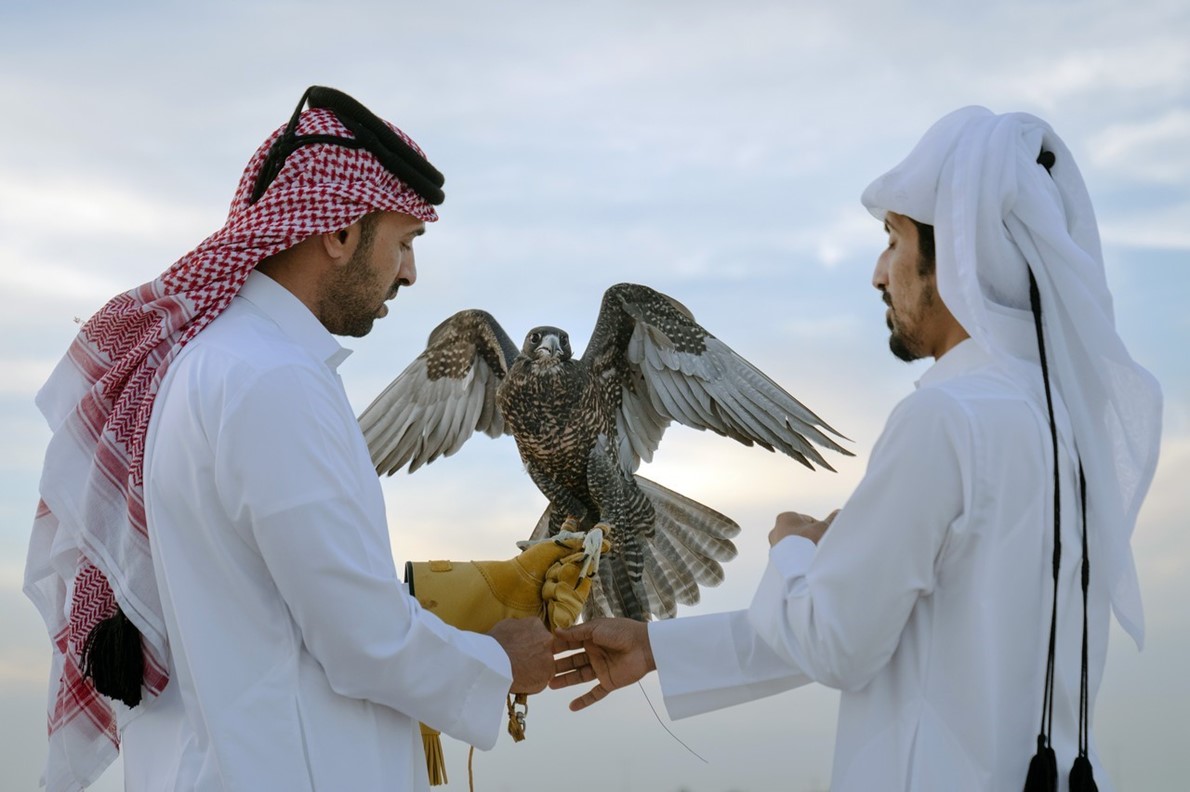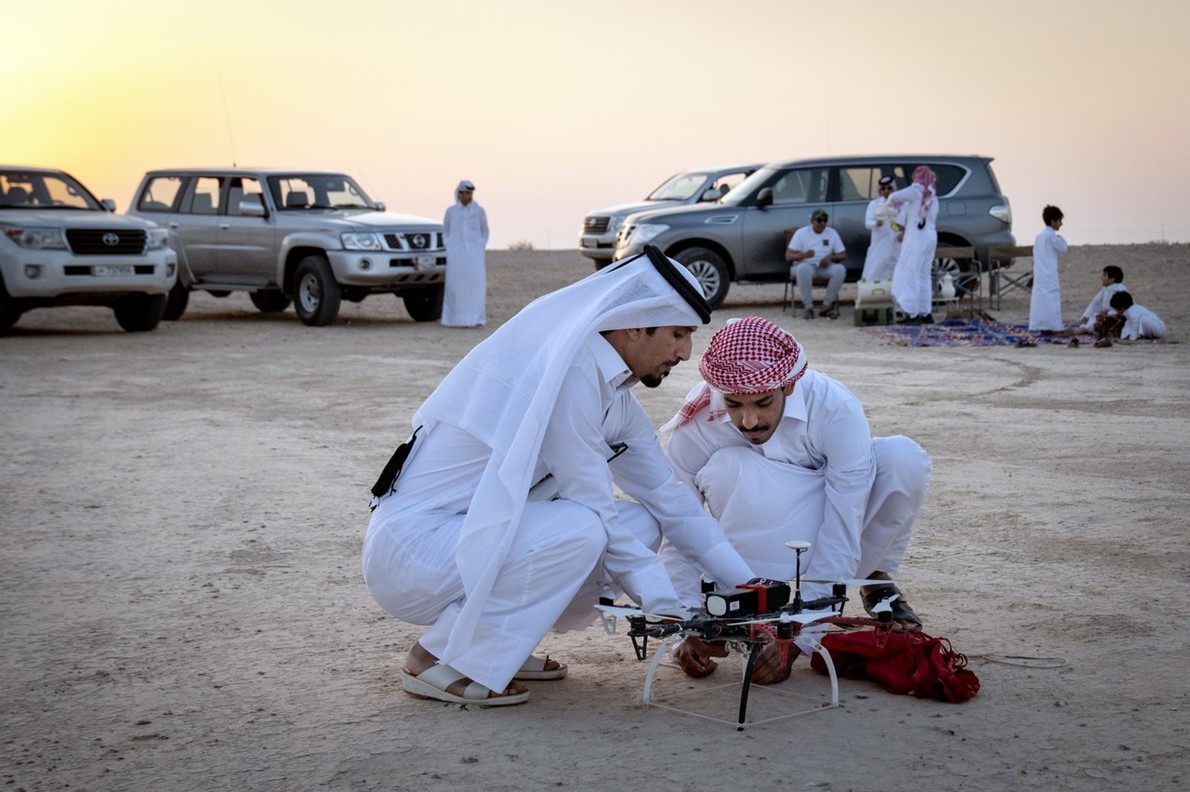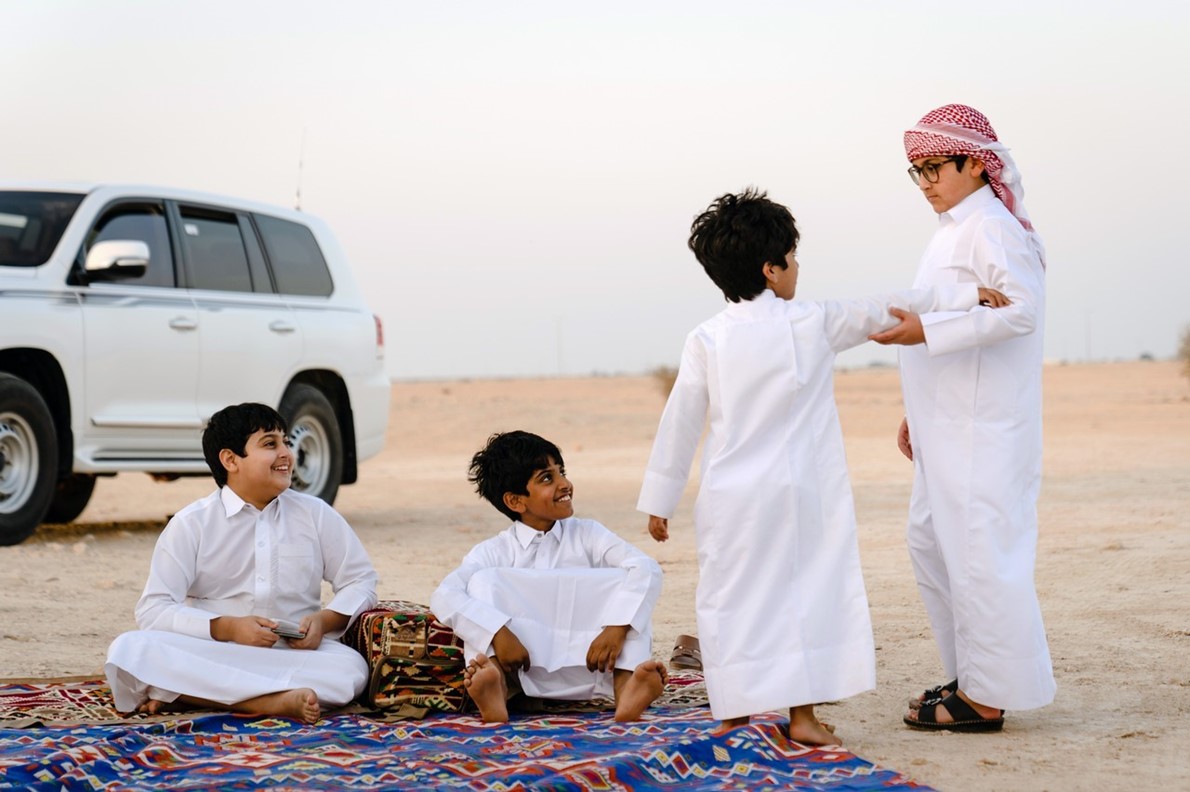AL-KHOR, Qatar — Just before dusk in a
desolate stretch of Qatari desert, Saqr Al-Humaidi slipped on a worn leather
glove and readied his falcon for its daily training. Coaxing the bird out of
the back seat of his
Toyota Land Cruiser, Humaidi, 40, removed a round hood
from its head and nodded to his cousin to prepare the target: a live pigeon
attached to a small red parachute that, in turn, was tied to a drone.
اضافة اعلان
Fiddling with a remote control, his cousin launched
the drone into the cool evening air. It dragged the pigeon higher and higher
until all that could be seen was a red speck dancing across the washed-out sky.
As if sensing a shift in the air, the falcon tilted its head, ruffled its
pointed wings, and took off in pursuit.
The hunt was on.
Every evening, Humaidi; his 13-year-old son, Talal;
and a handful of relatives come to this spot near the city of Al-Khor, about an
hour’s drive from the capital, Doha, to train their falcons for hunting
competitions. It is a rite of passage passed down through generations of his
family, and a touchstone of Qatari culture linking the country’s present to its
Bedouin past.
 Falconry hobbyists gather outside of Al Khor, Qatar, on November 29, 2022, to train their falcons for hunting competitions.
Falconry hobbyists gather outside of Al Khor, Qatar, on November 29, 2022, to train their falcons for hunting competitions.
Humaidi’s great-grandfather was raised here when it
was still a poor sliver of a country in the Gulf. He once used the birds to
hunt for small animals — adding a bit of protein to his family’s sparse diet.
But as Qatar became affluent with the discovery of vast gas reserves, one of
its oldest traditions was transformed as well.
Long before football fever swept Qatar, peaking with
its hosting of the World Cup this year, the sport of falconry was a point of
national pride.
These days, it has assumed a mostly symbolic role in
society. The birds are kept as pets and often trained by Qatari men — few if
any women are involved in the hobby — for racing competitions with cash prizes
of tens of thousands of dollars as well as new cars.
As the migrant workforce on which the country relies
has swelled, owning the birds has also become a sort of status symbol, a
visible way of identifying oneself as Qatari in a country where citizens are
outnumbered eight to one. Nearly everyone involved is a Qatari citizen, Humaidi
said.
 Falconers prepare to launch a drone during a training session for their falcons outside of Al Khor, Qatar, on December 3, 2022.
Falconers prepare to launch a drone during a training session for their falcons outside of Al Khor, Qatar, on December 3, 2022.
In the sky above him, his falcon dipped and swerved,
drawing closer and closer to the pigeon as the drone pulled the prey through
the sky.
“See how he’s chasing it,” said Humaidi’s cousin,
Mohammad Ali Al-Mohannadi, as he gently maneuvered the throttle on the drone’s
remote.
Drones are a relatively new addition to the
training, introduced in the past decade or so, he said.
Before that, the men would attach a pigeon to a kite
and release it into the sky for the falcons to chase. And before that, trainers
would take a sack of pigeon meat, cover it with feathers, attach it to a rope
and swing it in circles.
Nowadays, the men try to keep the bird in pursuit
for at least 10 minutes a day to strengthen its muscles. The faster the falcon
moves its wings, the more advanced a hunter it is, Mohannadi said.
If the bird seems lethargic, it could be a sign that
it needs more practice or is drained from the previous day’s workout.
owning the birds has also become a sort of status symbol, a visible way of identifying oneself as Qatari in a country where citizens are outnumbered eight to one
“They are like any animal: They get sick. They get
tired sometimes. They go for 15 minutes one day, and the next day, we find them
down with exhaustion,” he explained, eyes glued to the bird in the sky.
As the falcon snatched the pigeon, Mohannadi
screamed, “It’s done!” and released the red parachute connecting the prey to
the drone. The men then raced to where the falcon had landed to retrieve it,
the dead pigeon clasped in its long, curved talons.
Wrapped around the falcon’s ankle was a small
bracelet inscribed with Humaidi’s phone number, in case the bird did not return
to him during training and someone found it perched on their roof. Stroking the
bird’s nape, Humaidi gently removed a GPS device — another safety net — and
rearranged its feathers with care.
Losing one of the birds could be expensive; the best
racing falcons are worth millions of dollars, and even those kept as pets often
run into the tens of thousands.
 Children join older falconers as they gather for a training session for hunting competitions outside of Al Khor, Qatar, on December 3, 2022.
Children join older falconers as they gather for a training session for hunting competitions outside of Al Khor, Qatar, on December 3, 2022.
Humaidi’s falcon cost him a relatively modest
amount, about $2,000, he said.
It was a peregrine, one of two kinds of falcons that
dominate in the Gulf, and a species known for its speed and courage as well as
sensitivity.
“You must take special care of him, more than with
others,” he explained.
As the blood-red sun slipped below the horizon, the
men packed up their blankets and tea and placed the falcons back in their Land
Cruisers. It was a relaxed training day, they explained.
Unlike many other falconers, they did not plan to
enter their birds into the large hawking competition that takes place in
Qatar each January. The competitions can be fierce and the training required is
grueling.
The event involves a series of challenges that test
a bird’s eyesight, speed, and hunting prowess. In one of the contests, the
falcons race to catch pigeons that have been trained all year to evade them.
Last year, the pigeons were so good that they evaded capture
by every single falcon entered. The pigeons won the right to go on living, and
their trainer took home that contest’s prize.
Read more Travel
Jordan News



